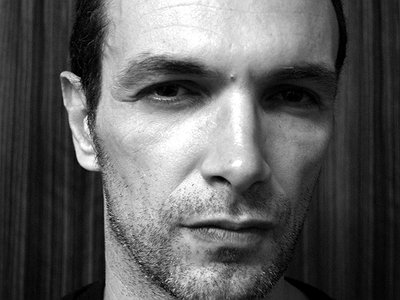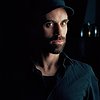Part 2
There are many descriptions of the ideal state of mind for being creative. What is it like for you? What supports this ideal state of mind and what are distractions? Are there strategies to enter into this state more easily?
Massimo Pupillo: I feel that the best possible state is the one of no expectations. when you don’t have to prove anything and you’re free from any need to convince or show off.
How do you make use of technology? In terms of the feedback mechanism between technology and creativity, what do humans excel at, what do machines excel at?
Alexandre Babel: I don’t trust myself with technology so much. I am more comfortable with things that have a physical body. Even when I compose. I am still using a pencil and a piece of paper. Pretty old fashioned I suppose…
Massimo Pupillo: I don’t think machine excel or are built to excel - they are simply tools. Humans may excel (or not) and this exactly because they are not computable, at least, not fully yet.
Production tools, from instruments to complex software environments, contribute to the compositional process. How does this manifest itself in your work? Can you describe the co-authorship between yourself and your tools?
Alexandre Babel: Everything has to go through the physical process. I need to feel a sound, make it a musical gesture and this is the beginning of the musical process.
Massimo Pupillo: I try to not jump in the hip thing of the moment, like everyone now plays modular synths, right? In general I feel I would like to say something with sound, and accordingly to that vision, I try and find the right tool. It can be detuning the instrument, preparing it with knives and forks, or adding a different pedal in the pedalboard.
How do you see the relationship between sound, space and performance and what are some of your strategies and approaches of working with them?
Alexandre Babel: A sound is a space and a space has a sound. I think when I improvise or when I compose, or even when I interpret someone else’s music, I create spaces. And these spaces differ from one performance to the other depending on the context where and when they are performed.
Massimo Pupillo: I’m afraid I tend to be a very loud player and fill every inch of a room with sound. This, I hope, it doesn't come from a testosterone approach but from a need to feel the sound physically in my body in its more basic and pure and nutrient form.
Our sense of hearing shares intriguing connections to other senses. From your experience, what are some of the most inspiring overlaps between different senses - and what do they tell us about the way our senses work? What happens to sound at its outermost borders?
Alexandre Babel: I recently did an experience with a audience walking through the city blindfolded. I found it absolutely amazing to witness what happens when you close one of your senses. The other ones become stronger and persistent. The experience was about listening to the environmental sounds, but the other senses started to collaborate as well to create a more complex experience. The senses of smell, touch, even taste were reacting. This affected the way I consider attending to a performance. In a concert, every sense is part of the picture. So when I organize a concert, I try to be aware of that, and consider the time of the concert, the lightning, the quality of the air, the architecture of the space, etc.
Massimo Pupillo: I have to tell you that this is probably the best question I was ever asked in any interview. Sound is a mysterious matter and it’s not by chance that in many traditions sound is at the beginning of creation, see the Hindu “Om” or the principle of all creation in the mysterious “Logos” in St. John's Gospel. And then, you have all the Kymatic experiments, showing how sound does affect matter in a direct way. Lots of traditions in the world have established precise rituals based on chanting and playing instruments, from Tibet to traditional Amazonian tribes. As if they know a technology and a knowledge of how sounds effects our nerves and our energy channels and minds, something that is lost to us. In that respect, we are blindfolded beginners, solely based on aesthetic parameters and finding our ways through trial and error. It feels like attuning to a force that we may think we create or control but it’s mostly the other way around. I feel I’m literally at the very beginning of understanding, and sound is like a wave that I clumsily try to surf, only to fall down and start again. The other interesting thing is that sound bypasses completely the language barrier when you’re not only busy analyzing its architecture, and its capable of bringing deeper meanings, which are for me much more fulfilling than those based on words.
Art can be a purpose in its own right, but it can also directly feed back into everyday life, take on a social and political role and lead to more engagement. Can you describe your approach to art and being an artist?
Massimo Pupillo: Every single one of your questions could lead to a book, you know? That said, I don’t consider personal life, art and politics as separate areas. I don’t think that politics are made by governments and in voting booths, anyway. If music has a real effect on us, it will put us in touch with deeper layers of our psyche, where we are more sensitive, layers where we find it intolerable to still be part a humankind that spends most of its money in war weapons, and where we feel that the soul of the planet is wailing for what humanity is doing to it. This is as political as it gets, because we are at a point where we need to change, to feel these things, instead of shielding ourselves. We need to feel more, to love more, and maybe, to suffer more.
It is remarkable, in a way, that we have arrived in the 21st century with the basic concept of music still intact. Do you have a vision of music, an idea of what music could be beyond its current form?
Alexandre Babel: Even though I have the feeling that everything has been done and experienced already, I would refer to the previous question. Music as a global sensitive experience including all senses could be something worth trying.
Massimo Pupillo: I don’t think in terms of progress so I won’t say beyond, but “before”. If one thinks of music in a historical context, and in anthropology, he finds out that music has been with humanity since the beginning of recorded history and before (see ancient flutes found in Ecuador, dated at least from the neolithic). So music has only become what we know now, entertainment, in relatively very recent times. I think it would be a good start to acknowledge that, and try and reconnect to the idea that we love it because we don't have anymore rituals that work, that hit us deeply, that shake our soul. Music and art were born in a context that I can only describe as religious, and in those times this word has purely a shamanistic value and not a dogmatic one. This is the basic concept of music as far as I’m concerned and I feel it would be a good start to not think that the last 100 or 200 years can transform completely the meaning of music. We surely don’t know more than our ancestors, we only have more toys to play with.






